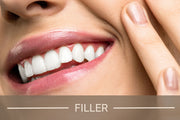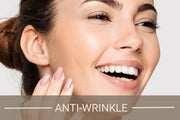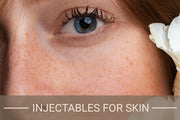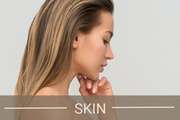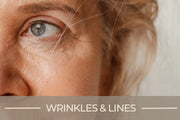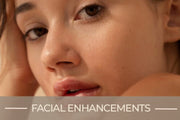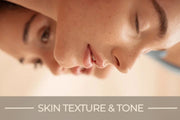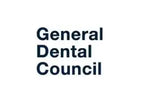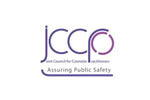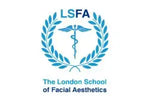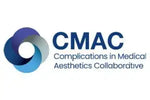Who Is Not Suitable For Botox Treatments?
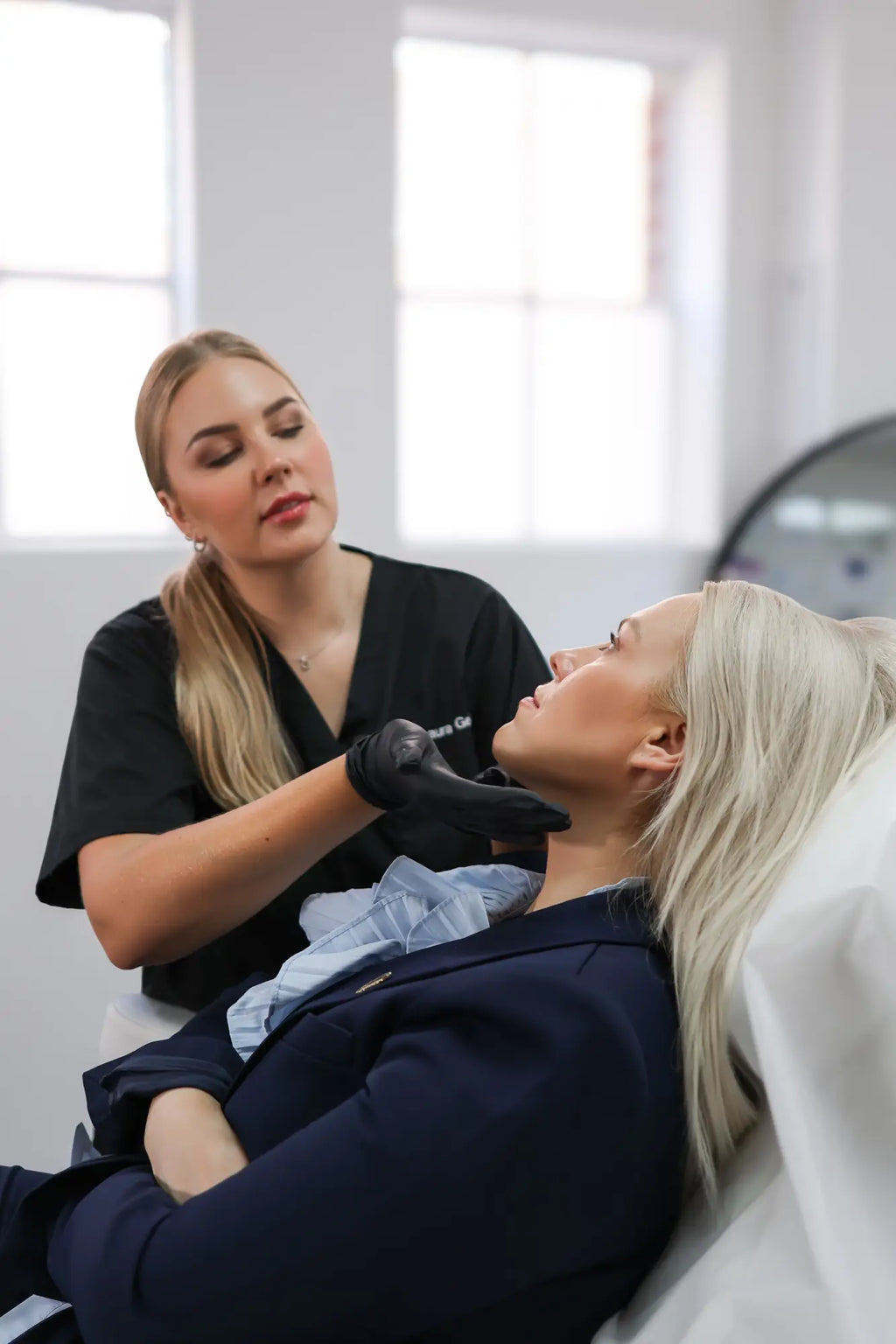
Content Verification



✨ Summary of Key Points ✨
- 🚫 Botox isn't suitable for pregnant or breastfeeding women—safety comes first!
- ⚠️ People with certain health conditions, such as neuromuscular disorders, should avoid Botox.
- 👩🔬 Always consult a licensed practitioner to determine if Botox is right for you.
💡 Key Advice and Tips from Our Experts 💡
- 👩⚕️ Speak to your doctor about your medical history before starting Botox treatments.
- ⏰ If you have concerns or allergies, a patch test can be done prior to treatment.
- 💡 Always ensure your practitioner is certified to administer Botox safely and effectively.
Botox treatments have become a popular solution for reducing fine lines and wrinkles, offering a smoother, youthful appearance. Many people turn to Botox injections as an effective anti-wrinkle treatment, but not everyone is a suitable candidate. While our parent article, Best Candidates for Botox Anti-Wrinkle Treatments, explores who can benefit from these procedures, this article will highlight those who should avoid them.
Certain medical conditions, allergies, and lifestyle factors can make Botox anti-ageing treatments unsafe or ineffective. Understanding whether you qualify for Botox for wrinkles is essential before undergoing treatment. In this guide, we’ll provide expert insights to help you determine if Botox is right for you and explore safer alternatives if it isn’t.
Understanding Botox Treatments
Botox injections are widely used in aesthetic medicine to reduce the appearance of fine lines and wrinkles. The procedure involves injecting a purified form of botulinum toxin into targeted facial muscles. This temporarily relaxes muscle activity, preventing wrinkle formation and creating a smoother skin appearance.
The demand for Botox treatments in London has increased significantly, with many people seeking non-surgical solutions for ageing skin. Globally, Botox remains one of the most performed anti-wrinkle treatments, with millions of procedures carried out each year. While results are temporary, many individuals choose Botox as part of their anti-ageing treatments to maintain a youthful look.
Before considering Botox for wrinkles, it is essential to consult a qualified medical professional. Not everyone is suitable for the treatment, and a thorough assessment is necessary to determine safety and effectiveness. Understanding your skin type, medical history, and expectations can help you make an informed decision.
Who Should Avoid Botox Treatments?
While Botox anti-ageing treatments are widely used, they are not suitable for everyone. Some individuals may face potential risks or complications due to medical conditions, allergies, or lifestyle factors. It is crucial to identify whether you are a suitable candidate before proceeding with any Botox injections.
Certain health conditions, medication use, and previous reactions to botulinum toxin can make Botox treatments unsafe. Lifestyle choices such as smoking, excessive alcohol consumption, and unrealistic expectations may also affect treatment outcomes. Consulting a qualified medical professional is essential to assess whether Botox for wrinkles is the right option for you.
Medical Conditions That Prevent Botox Use
Individuals with certain medical conditions should avoid Botox injections, as they may experience severe side effects or complications. Neuromuscular disorders such as Myasthenia Gravis and ALS can cause heightened sensitivity to botulinum toxin, leading to muscle weakness and breathing difficulties. Those with blood clotting disorders or compromised immune systems may also be at higher risk of adverse reactions.
Dr. Laura Geige, Medical Director and Skin Expert from It’s Me & You Clinic, explains, "Patients with neuromuscular conditions may experience severe side effects from Botox injections, making them unsuitable. In such cases, muscle relaxation caused by Botox could worsen existing symptoms and lead to further complications."
Additionally, individuals with chronic migraines requiring specific medical management should disclose their condition before considering Botox anti-wrinkle injections. While Botox is sometimes prescribed for migraine relief, it is administered differently from anti-wrinkle treatments, and self-referral for cosmetic use may not be appropriate. Full medical disclosure is essential to ensure safe and effective treatment.
Pregnancy and Breastfeeding – Why Botox is Not Recommended
Pregnant and breastfeeding women are advised to avoid Botox injections due to potential risks. Although no conclusive research confirms harm to the foetus or infant, the lack of studies makes it impossible to guarantee safety. During pregnancy, the body undergoes significant hormonal changes, which may affect how it responds to Botox anti-wrinkle injections.
Dr. Snieguole Geige, Dentist, Medical Doctor, and Senior Adviser, states, "Expectant and nursing mothers should avoid Botox treatments due to potential, albeit unproven, risks. Until more research is available, medical professionals recommend erring on the side of caution to protect maternal and infant health."
For new mothers seeking anti-ageing treatments, safer alternatives may be available. Options such as hydrating facials, chemical peels, and laser therapies can help improve skin texture without involving injectable substances. Consulting a qualified skincare specialist is essential to finding a suitable treatment plan.
Allergic Reactions and Sensitivities
Although Botox injections are widely used in anti-wrinkle treatments, some individuals may have allergic reactions to the ingredients. Botox contains botulinum toxin, along with stabilising proteins and preservatives, which can trigger adverse immune responses in sensitive individuals. Allergic reactions to Botox anti-ageing treatments are rare but can cause significant discomfort and health risks.
Dr. Giedre Narkiene, a specialist in dermatology, warns, "Patients with a history of allergic reactions to botulinum toxin or its ingredients should avoid Botox. Symptoms such as swelling, itching, or breathing difficulties could indicate a serious allergic response requiring immediate medical attention."
Common symptoms of an allergic reaction include redness, hives, swelling at the injection site, and, in severe cases, anaphylaxis. If a patient is unsure about their sensitivity to Botox treatments, a patch test or consultation with a medical professional may be necessary. Identifying potential allergens beforehand can help prevent serious complications.
Lifestyle Factors That Make Botox Unsuitable
Certain lifestyle habits can affect the safety and effectiveness of Botox injections. While Botox treatments are widely used for reducing fine lines and wrinkles, some individuals may not achieve the desired results due to external factors. Poor skin health, smoking, and excessive alcohol intake can all contribute to complications or reduced effectiveness.
Heavy smoking and excessive alcohol consumption can negatively impact skin elasticity and healing. Smoking reduces blood circulation, slowing down recovery after Botox anti-wrinkle injections, while alcohol increases the risk of bruising and swelling. Individuals with these habits may find that Botox for wrinkles provides less noticeable or shorter-lasting results.
Poor skin health and unmanaged chronic skin conditions such as severe acne, rosacea, or eczema can also make Botox anti-ageing treatments unsuitable. Skin that is inflamed, highly sensitive, or prone to infections may react unpredictably to injections, increasing the likelihood of side effects. A dermatologist should be consulted before considering any anti-wrinkle treatments.
Lastly, unrealistic expectations can lead to dissatisfaction with Botox near me. Botox does not produce permanent results, nor does it completely erase deep wrinkles. It is essential to understand that maintenance treatments are required, and individual outcomes vary. A consultation with a qualified professional can help manage expectations and explore alternative options if necessary.
Alternative Anti-Ageing Treatments for Unsuitable Candidates
For those who are not suitable for Botox injections, there are other ways to achieve a more youthful appearance. If Botox treatments pose risks due to medical conditions, allergies, or lifestyle factors, exploring alternative anti-ageing treatments can be a safer option. The right approach depends on individual skin concerns and overall health.
Several non-invasive anti-wrinkle treatments can help improve skin texture and reduce fine lines. Options such as chemical peels, microdermabrasion, laser therapy, and high-quality skincare regimens can promote collagen production and skin renewal. These treatments do not involve injections and may be more suitable for individuals who cannot undergo Botox for wrinkles.
Consulting a medical expert is essential before choosing an alternative treatment. A skincare specialist or dermatologist can assess your skin type, medical history, and concerns to recommend the most effective solution. Personalised advice ensures that the chosen anti-wrinkle treatments align with your goals while maintaining skin health and safety.
The Bottom Line
Not everyone is a suitable candidate for Botox treatments, and certain medical conditions, allergies, and lifestyle factors can make them unsafe. Consulting a qualified professional is essential before undergoing Botox anti-wrinkle injections to assess risks and explore safer alternatives if necessary. If you are unsure whether Botox for wrinkles is right for you, seek expert advice for personalised guidance. For more information on who qualifies for Botox, read our parent article, Best Candidates for Botox Anti-Wrinkle Treatments.
Disclaimer: This article is for informational purposes only and does not replace professional medical advice. Consult a qualified doctor before considering any Botox anti-ageing treatments.
